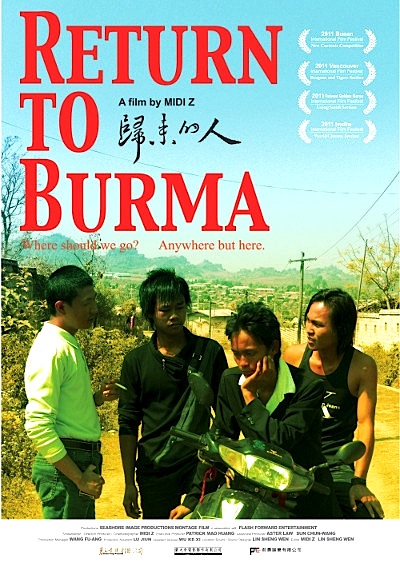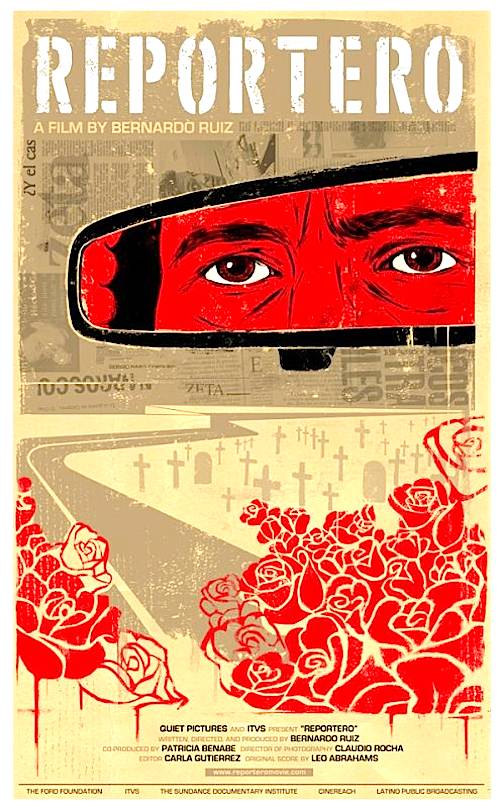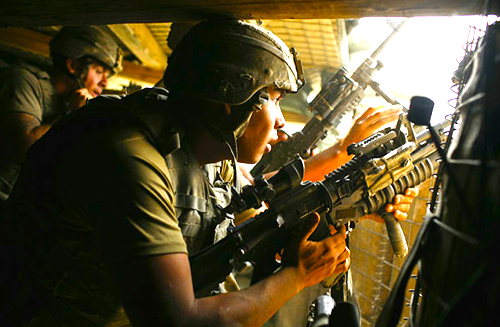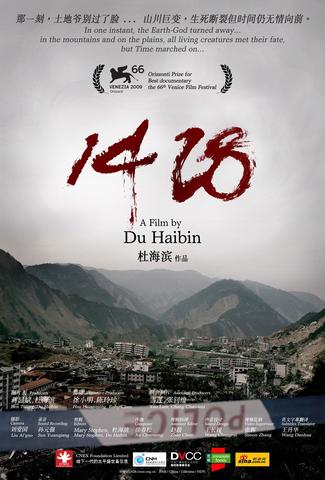By Joe Bendel. Coca-Cola may have just announced its imminent return to Burma, but China maintains a chokehold on its client state’s closed economy. Such is the situation an expatriate construction worker finds on his homecoming. Regardless of potential political liberalizations, economic opportunities remain few and far between in Midi Z’s Return to Burma, which screens during the 2012 Los Angeles Film Festival.
After years of working and saving in Taipei, Wang Xing-hong is returning home. He had planned to travel with his co-worker Rong, but instead he will carry his countryman’s ashes. Transferring from bus to bus he hears the saccharine radio jingles proclaiming the promise of progress through new elections. Yet he arrives home to the same depressed provincial town, except now maybe even more so.
Traveling between Taiwan and Burma is an expensive and complicated proposition. Clearly, Wang would prefer to stay and put down roots. Simultaneously, his sporadically employed younger brother is about to leave for Malaysia in search of work. The fact the neighboring country offers greater opportunity than the more richly resource-endowed Burma is a testament to decades of government mismanagement and plunder. Yet, that is the state of things.
 The pseudo-characters of Return are a lot like New Yorkers compulsively discussing comparative rents and maintenance fees at a dinner party. Viewers will leave knowing the market wage for just about every form of manual labor in the country as well as the start-up cost for numerous small service proprietorships. The lesson is clear—do not relocate to Burma. By the way, Midi Z and his colleagues obviously call it Burma and not Myanmar, unlike the military junta and the legacy media.
The pseudo-characters of Return are a lot like New Yorkers compulsively discussing comparative rents and maintenance fees at a dinner party. Viewers will leave knowing the market wage for just about every form of manual labor in the country as well as the start-up cost for numerous small service proprietorships. The lesson is clear—do not relocate to Burma. By the way, Midi Z and his colleagues obviously call it Burma and not Myanmar, unlike the military junta and the legacy media.
Shot surreptitiously on the streets of Yangon and Mandalay, with non-professional actors kind of-sort of playing themselves, Return is the first domestically produced Burmese feature (evidently ever). It was also more or less illegal. Perhaps not surprisingly, it is closely akin stylistically to the Digital Generation school of independent Chinese filmmakers. Deliberate and observational rather than action-driven or chatty, the film is really all about conveying the experience of Burma’s underclass—and that includes everyone except the top military and government officials.
It is probably a small miracle the Burma-born Taiwan-based Midi Z and his crew-members were not imprisoned during the Return shoot. They earn considerable kudos for vividly capturing the atmosphere of Burma. There are times when you can practically smell the humid night air. Still, the languid pace and hardscrabble living conditions have a rather claustrophobic effect. It is a worthy but wearying look inside the isolated society. Recommended for dedicated Burma watchers (but not necessarily casual connoisseurs of Asian cinema), Return to Burma screens this Friday (6/22) and Saturday (6/23) as an International Showcase selection of the 2012 LA Film Fest.
LFM GRADE: B-
Posted on June 19th, 2012 at 8:45pm.







